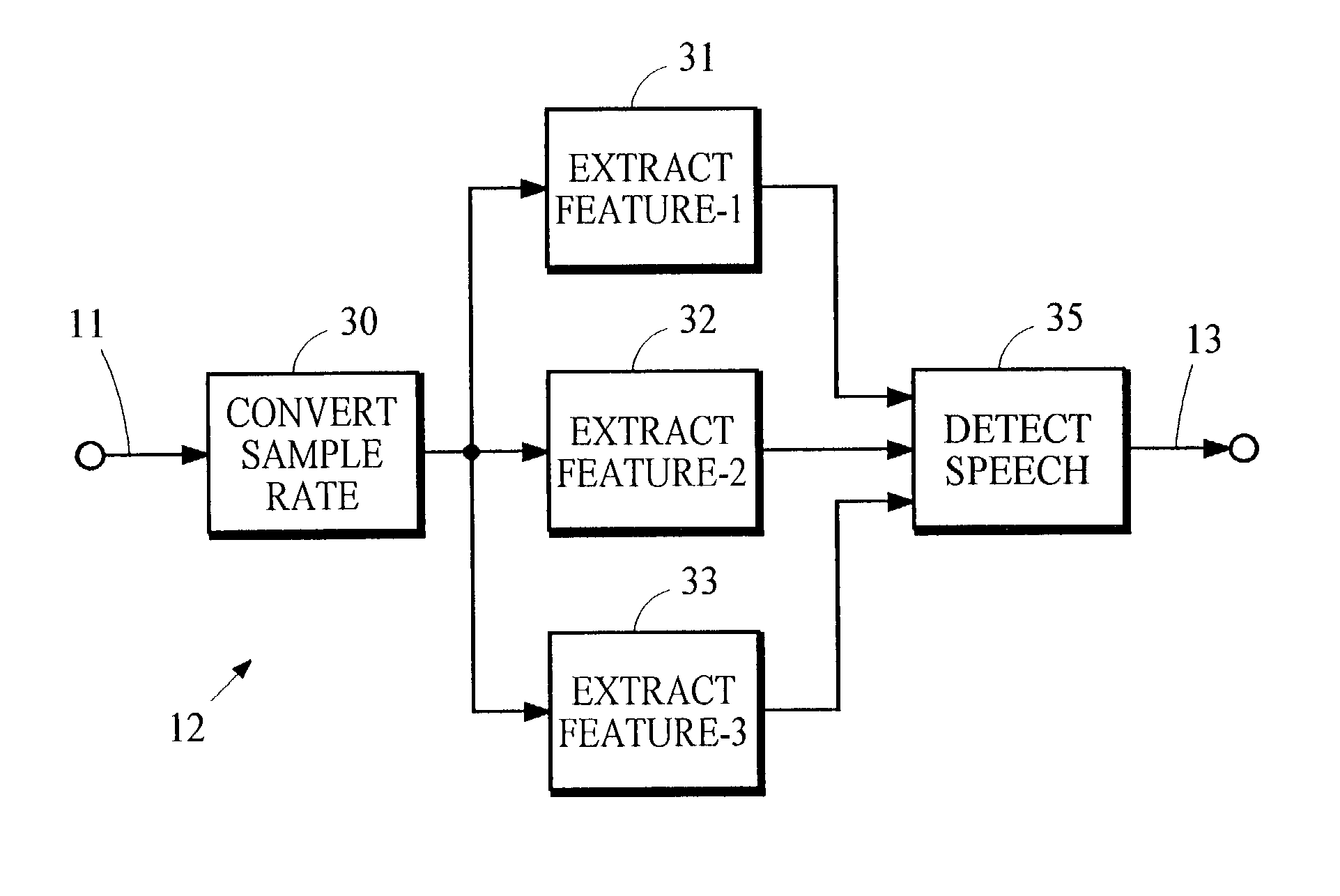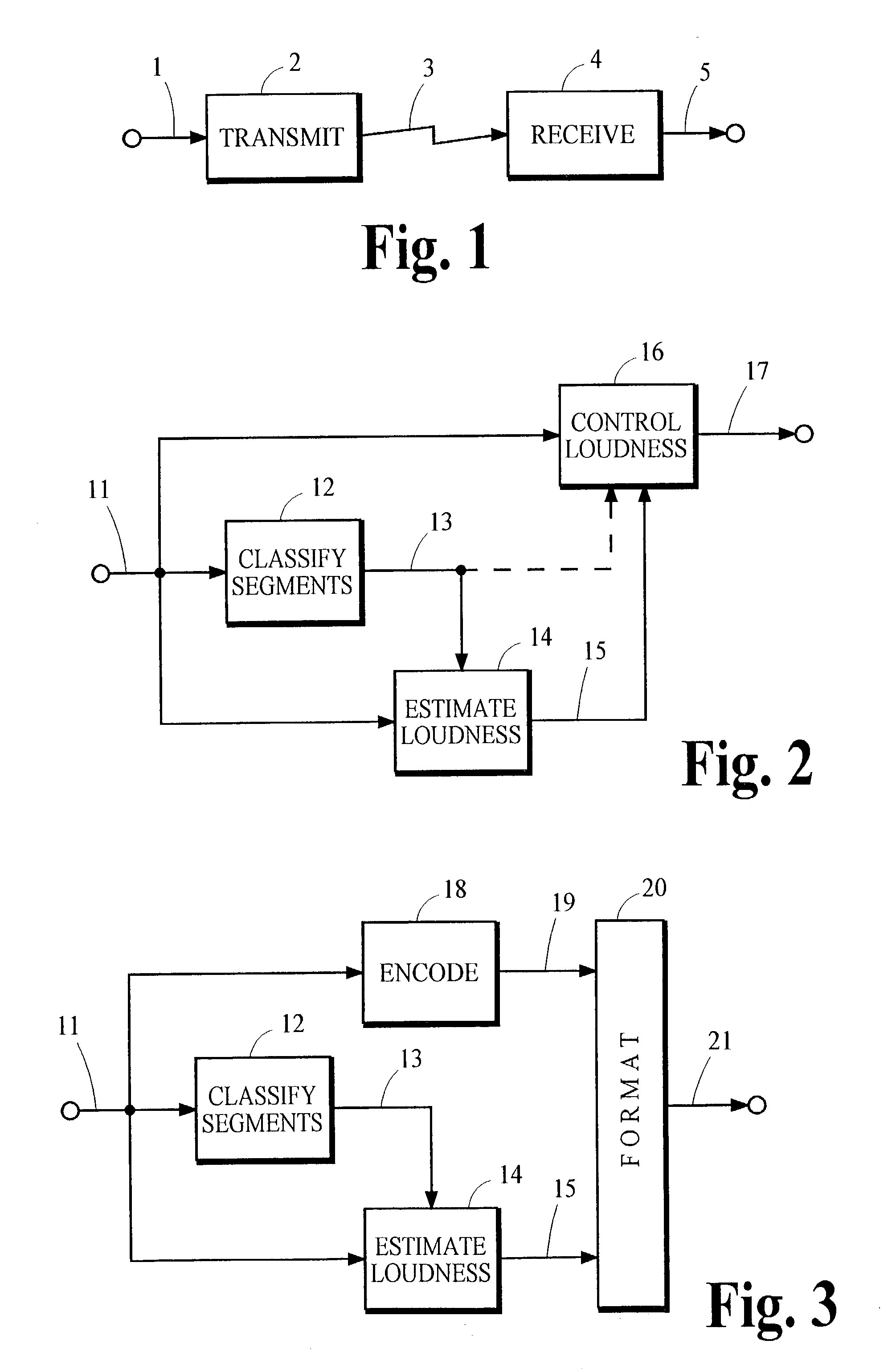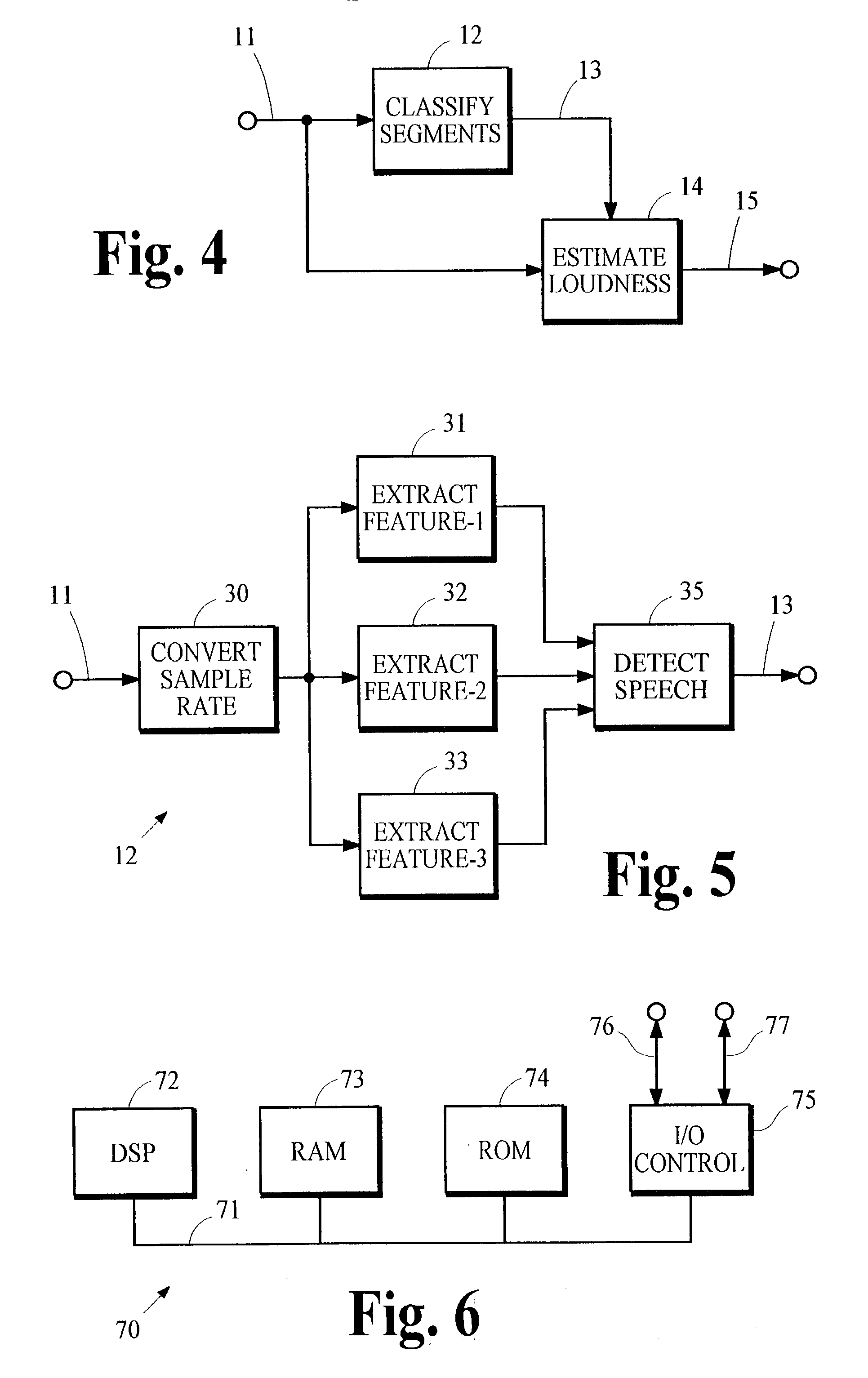Controlling loudness of speech in signals that contain speech and other types of audio material
a technology of speech and loudness, applied in the direction of speech analysis, automatic tone/bandwidth control, instruments, etc., can solve the problems of unsatisfactory differences in the loudness of speech of programs received on different channels and for different, the introduction of digital broadcasting techniques will likely aggravate this problem, and the difference in the loudness of speech between different programs on the same channel and between programs from different channels
- Summary
- Abstract
- Description
- Claims
- Application Information
AI Technical Summary
Benefits of technology
Problems solved by technology
Method used
Image
Examples
Embodiment Construction
A. System Overview
[0029] FIG. 1 is a schematic block diagram of an audio system in which the transmitter 2 receives an audio signal from the path 1, processes the audio signal to generate audio information representing the audio signal, and transmits the audio information along the path 3. The path 3 may represent a communication path that conveys the audio information for immediate use, or it may represent a signal path coupled to a storage medium that stores the audio information for subsequent retrieval and use. The receiver 4 receives the audio information from the path 3, processes the audio information to generate an audio signal, and transmits the audio signal along the path 5 for presentation to a listener.
[0030] The system shown in FIG. 1 includes a single transmitter and receiver; however, the present invention may be used in systems that include multiple transmitters and / or multiple receivers. Various aspects of the present invention may be implemented in only the transmi...
PUM
 Login to View More
Login to View More Abstract
Description
Claims
Application Information
 Login to View More
Login to View More - R&D
- Intellectual Property
- Life Sciences
- Materials
- Tech Scout
- Unparalleled Data Quality
- Higher Quality Content
- 60% Fewer Hallucinations
Browse by: Latest US Patents, China's latest patents, Technical Efficacy Thesaurus, Application Domain, Technology Topic, Popular Technical Reports.
© 2025 PatSnap. All rights reserved.Legal|Privacy policy|Modern Slavery Act Transparency Statement|Sitemap|About US| Contact US: help@patsnap.com



